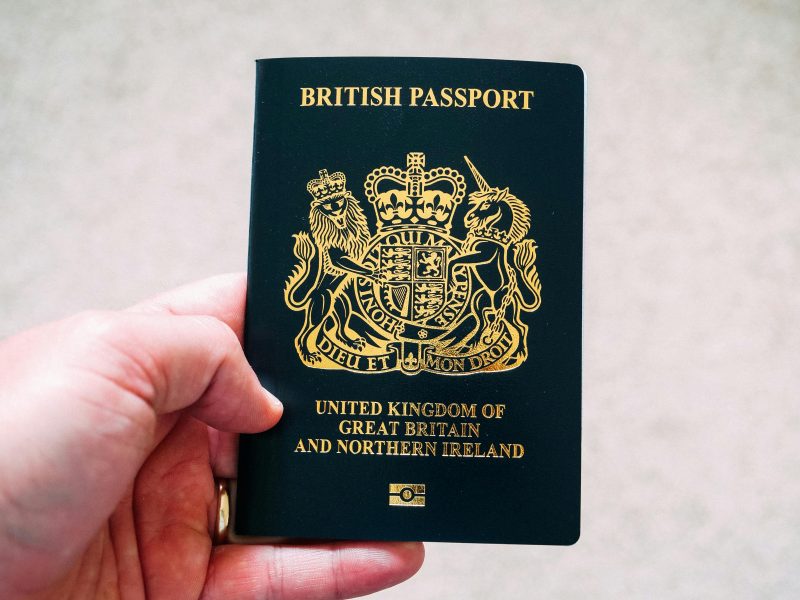Canada Express Entry: Permanent Residence Guide for Nigerian Skilled Workers
Canada Express Entry: Permanent Residence Guide for Nigerian Skilled Workers: Canada Express Entry: Permanent Residence Guide for Nigerian Skilled Workers, Canada’s Express Entry system is a streamlined immigration pathway designed to attract skilled workers from around the globe, including Nigeria, to become permanent residents. Launched in 2015, this system manages applications for three primary federal economic immigration programs:
- Federal Skilled Worker Program (FSWP)
- Federal Skilled Trades Program (FSTP)
- Canadian Experience Class (CEC)
For Nigerian professionals aiming to immigrate to Canada, understanding the intricacies of the Express Entry system is crucial. This comprehensive guide delves into the eligibility criteria, application process, and strategies to enhance your chances of securing permanent residence through Express Entry.
Understanding the Express Entry System
Express Entry is an online system used by the Canadian government to manage and process applications for skilled workers who wish to immigrate to Canada and acquire permanent residence status. It operates on a points-based system known as the Comprehensive Ranking System (CRS), which assesses candidates based on factors such as age, education, work experience, and language proficiency.
Programs Managed Under Express Entry
-
Federal Skilled Worker Program (FSWP): Targets skilled workers with foreign work experience and is assessed based on factors like education, work experience, and language skills.
-
Federal Skilled Trades Program (FSTP): Designed for skilled tradespersons with qualifications and experience in specific trades.
-
Canadian Experience Class (CEC): For individuals with at least one year of Canadian work experience in skilled occupations.
Eligibility Criteria for Nigerian Applicants
To be eligible for the Express Entry pool, Nigerian applicants must meet the criteria of at least one of the aforementioned programs. The Federal Skilled Worker Program is often the most relevant for individuals without prior Canadian work experience. Key eligibility requirements include:
1. Skilled Work Experience
Applicants must have at least one year of continuous full-time (or equivalent part-time) paid work experience in a skilled occupation classified under the National Occupational Classification (NOC) TEER categories 0, 1, 2, or 3. The work experience must be within the last ten years and in the same type of job as the primary occupation listed in the application.
2. Language Proficiency
. Applicants must take an approved language test and achieve a minimum Canadian Language Benchmark (CLB) level 7, which corresponds to at least 6.0 in each section of the IELTS.
3. Educational Credentials
A minimum of a Canadian high school diploma or an equivalent foreign credential is required. Foreign education credentials must undergo an Educational Credential Assessment (ECA) to verify their equivalency to Canadian standards.
4. Proof of Funds
Applicants must demonstrate sufficient financial resources to support themselves and their family members upon arrival in Canada.
5. Selection Factors
The FSWP uses a points grid to assess eligibility, with factors including age, education, work experience, arranged employment in Canada, language proficiency, and adaptability. Applicants must score at least 67 out of 100 points to qualify.
The Comprehensive Ranking System (CRS)
Once eligible, applicants enter the Express Entry pool and are ranked using the CRS, which assigns points based on:
- Core Human Capital Factors: Age, education, language proficiency, and work experience.
- Spouse or Common-Law Partner Factors: Education, language proficiency, and work experience of the spouse or partner.
- Skill Transferability Factors: Combination of education and work experience with language proficiency.
- Additional Factors: Provincial nomination, arranged employment, Canadian education, French language proficiency, and having a sibling in Canada.
The maximum CRS score is 1,200 points, with a provincial nomination providing an additional 600 points, significantly enhancing the chances of receiving an Invitation to Apply (ITA) for permanent residence.
Step-by-Step Application Process
1. Educational Credential Assessment (ECA)
Obtain an ECA from a designated organization to verify that your foreign education credentials are equivalent to Canadian standards. This assessment is crucial for earning points for education under the CRS.
2. Language Testing
Take an approved language test, such as the IELTS for English or TEF for French. Achieving higher language proficiency scores can significantly boost your CRS points.
3. Create an Express Entry Profile
Submit an online profile through the Immigration, Refugees and Citizenship Canada (IRCC) website. Ensure all information is accurate and complete, as this will determine your CRS score and ranking in the pool.
4. Improve Your CRS Score
While in the pool, consider steps to enhance your CRS score, such as gaining additional work experience, improving language test scores, obtaining a job offer from a Canadian employer, or securing a provincial nomination.
5. Receive an Invitation to Apply (ITA)
IRCC conducts regular draws from the Express Entry pool, inviting candidates with the highest CRS scores to apply for permanent residence.
6. Submit a Complete Application
Provide all required documents, including police certificates, medical examinations, and proof of funds.
Step-by-Step Application Process
Step 1: Determine Eligibility
Before applying, ensure you meet the eligibility criteria for one of the three Express Entry programs. Use the official Immigration, Refugees and Citizenship Canada (IRCC) eligibility tool to check your qualifications.
Step 2: Take a Language Test
Applicants must prove proficiency in either English or French by taking an approved test such as:
- IELTS (International English Language Testing System) for English
- TEF (Test d’Évaluation de Français) for French
A minimum Canadian Language Benchmark (CLB) of 7 is required for most Express Entry programs.
Step 3: Obtain an Educational Credential Assessment (ECA)
Since Nigerian degrees need verification for Canadian equivalency, applicants must get an ECA from organizations such as:
- World Education Services (WES)
- International Credential Assessment Service of Canada (ICAS)
- Comparative Education Service (CES)
Step 4: Create an Express Entry Profile
Once eligible, applicants must create an Express Entry profile on the IRCC website. The profile requires:
- Personal details
- Educational qualifications
- Work experience
- Language test results
- Proof of funds (if applicable)
Step 5: Improve Your CRS Score
A high CRS score increases the chances of receiving an ITA. Ways to boost your score include:
- Improving language test scores (Retaking IELTS/TEF for higher marks)
- Gaining more work experience
- Securing a provincial nomination (worth 600 CRS points)
- Obtaining a valid Canadian job offer
Step 6: Receive an Invitation to Apply (ITA)
Express Entry draws occur regularly, inviting candidates with the highest CRS scores.
Step 7: Gather and Submit Documents
Key documents include:
- Passport
- Language test results
- Educational Credential Assessment (ECA)
- Proof of work experience
- Police clearance certificates
- Medical examination report
- Proof of funds
Step 8: Submit Biometrics and Medical Examination
Applicants must complete biometrics at a designated center and undergo a medical exam by an IRCC-approved panel physician.
Step 9: Wait for Processing and Approval
Processing time for Express Entry applications generally takes six months or less. Successful applicants receive a Confirmation of Permanent Residence (COPR) and a Permanent Resident Visa (if applicable).
Step 10: Move to Canada and Complete Landing Formalities
Upon arrival in Canada, applicants must complete landing procedures at the border or an immigration office. They will receive a Permanent Resident (PR) Card after settling in Canada.
TIPS
1. Increase Your CRS Score
- Improve your IELTS/TEF scores.
- Gain additional qualifications.
- Secure a Canadian job offer or provincial nomination.
2. Apply for Provincial Nominee Programs (PNPs)
- Provinces like Ontario, Alberta, and British Columbia offer PNPs, which provide additional points and increase the chance of selection.
3. Gain Canadian Work or Study Experience
- Studying in Canada or obtaining a work permit can improve eligibility for the Canadian Experience Class (CEC).
4. Stay Updated on Express Entry Draws
- Regularly check the latest CRS cut-off scores and prepare accordingly.
5. Use an Immigration Consultant (Optional)
- Consider hiring a Regulated Canadian Immigration Consultant (RCIC) for professional guidance.
Challenges and How to Proffer Remedy to All
1. Low CRS Score
- Apply for PNPs.
- Gain higher education qualifications.
- Retake the IELTS/TEF for better language scores.
2. Financial Constraints
- Ensure you have the required proof of funds to meet IRCC guidelines.
3. Documentation Issues
- Double-check documents before submission to avoid application delays or rejections.
4. Processing Delays
- Submit a complete and accurate application to prevent unnecessary delays.
Conclusion
Canada Express Entry: Permanent Residence Guide for Nigerian Skilled Workers, Canada’s Express Entry system offers Nigerian skilled workers a fantastic opportunity to obtain permanent residency. While the process is competitive, thorough preparation, improving your CRS score, and staying informed can significantly enhance your chances of success. By following the step-by-step guide, overcoming challenges, and leveraging available resources, you can achieve your goal of immigrating to Canada and building a successful future.
For more details, always check the official IRCC website for the latest updates and requirements.




